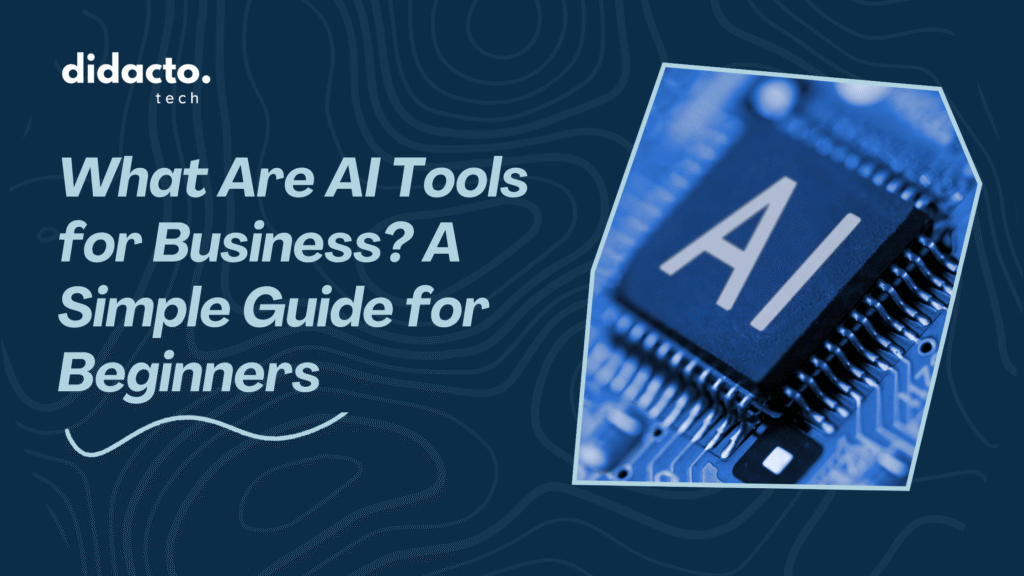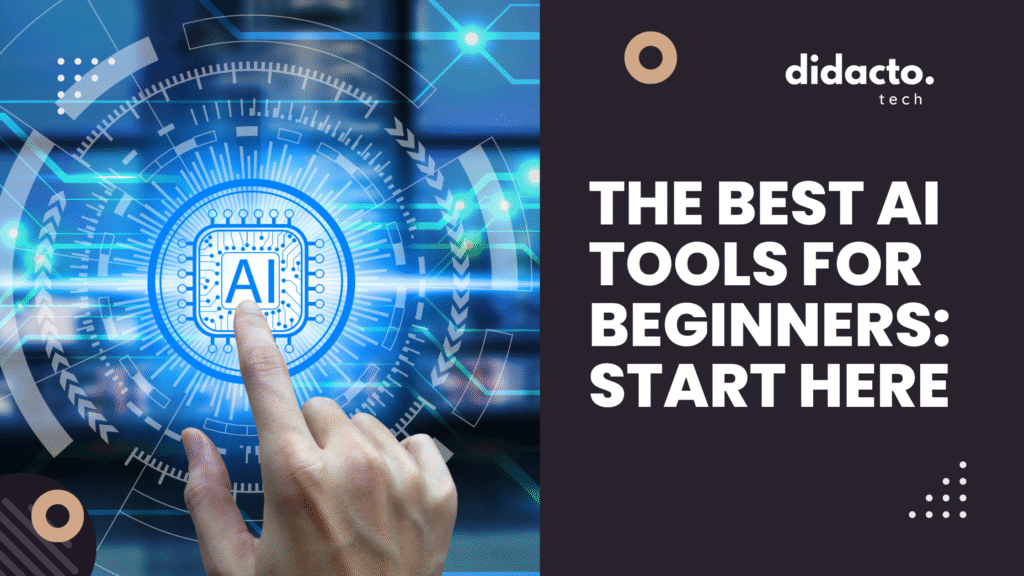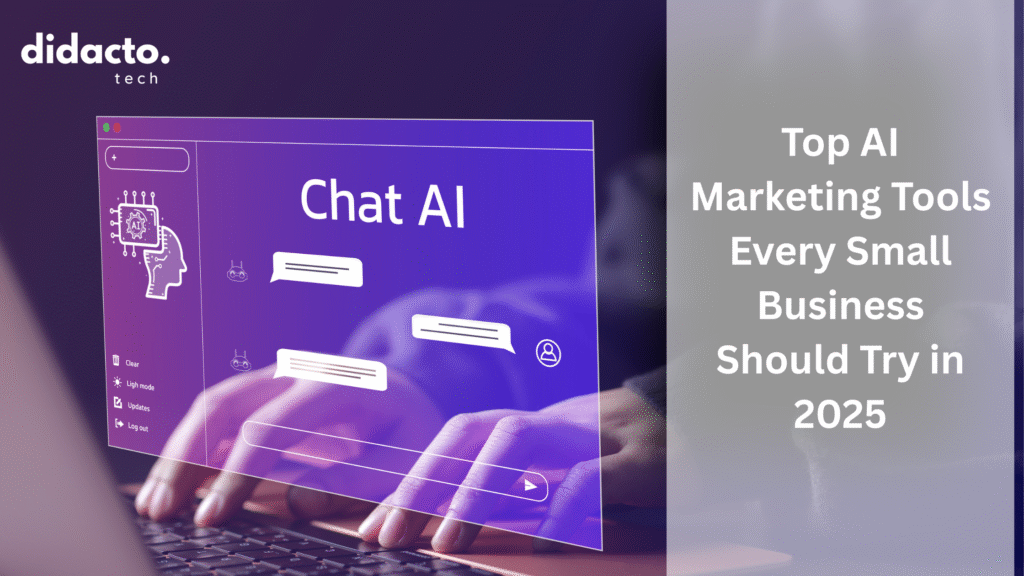Table of Contents
Introduction to AI Tools in Business
What Are AI Tools?
AI tools are computer programs or systems that use artificial intelligence to help businesses do things more efficiently. In simple terms, these tools can “think” and “learn” from data, making decisions or suggestions that would usually need a human touch. For example, an AI tool might help answer customer questions, sort through emails, or even predict what products will sell best next month.
Why Are Businesses Using AI Tools?
Businesses are turning to AI tools for several reasons:
- Save time: AI can handle repetitive tasks, freeing up people for more important work.
- Improve accuracy: AI tools can analyze large amounts of data quickly and spot patterns that humans might miss.
- Better customer experience: AI can provide instant responses to customers, making support faster and more helpful.
- Stay competitive: As more companies use AI, it’s becoming a standard way to keep up with the competition.
Personally, I’ve noticed that even small businesses in my neighborhood are starting to use AI-powered chatbots on their websites. It’s amazing how much smoother things run when technology takes care of the little things.
Common Misconceptions About AI in Business
There are a few myths about AI that I hear all the time:
- “AI will take all our jobs.” In reality, AI often helps people do their jobs better, rather than replacing them completely.
- “AI is only for big companies.” Many AI tools are affordable and easy to use, even for small businesses.
- “AI is too complicated.” While the technology behind AI is complex, many tools are designed to be user-friendly.
AI isn’t magic—it’s just another tool to help businesses work smarter.
Types of AI Tools Used in Business
Customer Service and Support Tools
AI chatbots and virtual assistants are everywhere these days. They can answer common questions, help customers track orders, or even handle simple complaints. For example, I once used a chatbot to change a flight booking, and it was much faster than waiting on hold for a human agent.
Data Analysis and Reporting Tools
AI can sift through mountains of data to find useful insights. Tools like Google Analytics or Microsoft Power BI use AI to spot trends, predict sales, or highlight areas that need attention. This helps businesses make better decisions without spending hours crunching numbers.
Marketing and Sales Tools
AI helps businesses understand their customers better. For instance, email marketing platforms use AI to suggest the best time to send messages or which products to recommend. I’ve seen online stores use AI to personalize the shopping experience, making it feel like they really “get” what I’m looking for.
Human Resources and Recruitment Tools
Hiring can be a long process, but AI tools can scan resumes, schedule interviews, and even help with onboarding new employees. Some tools can even predict which candidates are most likely to succeed in a role, saving time and reducing bias.
Operations and Workflow Tools
AI can help manage inventory, schedule deliveries, or automate routine office tasks. For example, some restaurants use AI to predict how much food to order each week, reducing waste and saving money.
How AI Tools Work: A Beginner’s Perspective
The Basics of Machine Learning and Automation
At its core, AI learns from examples. If you show an AI tool lots of pictures of cats and dogs, it will eventually learn to tell them apart. In business, this means AI can learn from past sales, customer feedback, or any other data you have.
Data Input and Output in AI Tools
AI tools need information to work. This could be customer questions, sales numbers, or even social media posts. The tool processes this data and gives you something useful in return—like a report, a prediction, or an answer to a customer’s question.
Integration with Existing Business Systems
Most AI tools are designed to work with the software you already use. For example, an AI-powered email assistant can connect to your inbox, or a sales prediction tool can pull data from your inventory system. This makes it easier to add AI to your business without starting from scratch.
Benefits and Challenges of Using AI Tools
Key Advantages for Businesses
- Efficiency: AI can handle tasks quickly and accurately.
- Cost savings: Automating routine work can reduce labor costs.
- Better decisions: AI can analyze data and suggest the best course of action.
From my own experience, using an AI-powered scheduling tool has saved me hours each week. It’s like having a super-organized assistant who never gets tired.
Common Challenges and Limitations
- Data quality: AI is only as good as the data you give it. Bad data can lead to bad results.
- Cost: Some AI tools can be expensive, especially for advanced features.
- Technical barriers: Setting up AI tools can be tricky if you’re not tech-savvy.
Ethical and Privacy Considerations
It’s important to use AI responsibly. Businesses need to protect customer data and be transparent about how AI is used. I always appreciate when companies explain how my information is handled—it builds trust.
Getting Started with AI Tools in Your Business
Assessing Your Business Needs
Start by looking at your daily tasks. Are there repetitive jobs that take up too much time? Are you struggling to keep up with customer questions? These are good places to consider using AI.
Choosing the Right AI Tools
Think about:
- Ease of use: Will your team be comfortable using the tool?
- Cost: Does it fit your budget?
- Support: Is help available if you get stuck?
- Integration: Will it work with your current systems?
I always recommend trying out free trials before committing. It’s the best way to see if a tool fits your needs.
Steps for Implementation and Training
- Start small: Pick one area to test AI, like customer support.
- Train your team: Make sure everyone knows how to use the new tool.
- Monitor results: Check if the tool is actually helping, and adjust as needed.
Remember, adopting AI is a journey, not a one-time event.
The Future of AI Tools in Business
Trends to Watch
AI is getting better at understanding language, making predictions, and even creating content. Tools are becoming more affordable and easier to use, which means more businesses can benefit.
Preparing for Ongoing Changes
AI technology changes quickly. Stay curious and keep learning about new tools and updates. I like to set aside time each month to read about the latest trends—it helps me stay ahead.
Building a Culture of Learning and Adaptation
Encourage your team to experiment with new tools and share what they learn. The more open you are to change, the easier it will be to adapt as AI evolves.
The businesses that thrive will be the ones that keep learning and adapting.
Summary
AI tools for business are computer programs that help companies work smarter by automating tasks, analyzing data, and improving customer experiences. They’re used in areas like customer service, marketing, HR, and operations. While AI offers big benefits like efficiency and cost savings, there are also challenges such as data quality and privacy concerns. Getting started means assessing your needs, choosing the right tools, and training your team. As AI continues to evolve, staying open to learning and change will help your business succeed.
Frequently Asked Questions (FAQs)
What is the difference between AI tools and traditional software?
Traditional software follows set instructions, while AI tools can learn from data and improve over time. This means AI can adapt to new situations, while regular software can’t.
Do I need technical skills to use AI tools in my business?
Not always. Many AI tools are designed to be user-friendly, with simple interfaces and helpful guides. However, some advanced tools might need a bit more technical know-how.
How much do AI tools typically cost for small businesses?
Prices vary. Some tools are free or offer basic plans for a small monthly fee, while others can be more expensive. It’s a good idea to start with a free trial to see if a tool is worth the investment.
Can AI tools replace human workers?
AI can automate some tasks, but it usually works best alongside people. It can handle repetitive jobs, while humans focus on creative or complex work.
How can I ensure my business data is safe when using AI tools?
Choose reputable AI providers, read their privacy policies, and make sure they use strong security measures. Always be clear with customers about how their data is used.




Pingback: The Best AI Tools for Beginners: Start Here - didacto Tech
Pingback: Top AI Marketing Tools Every Small Business Should Try in 2025 - didacto Tech